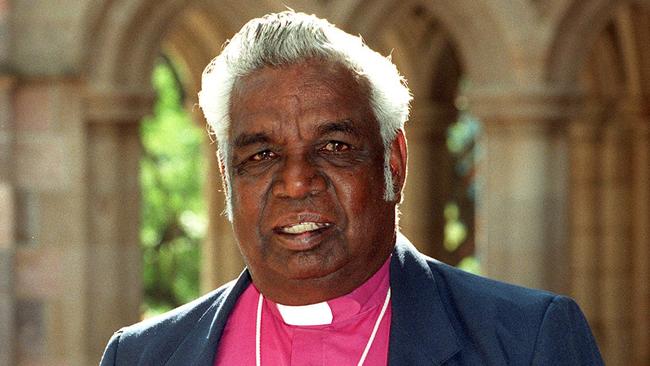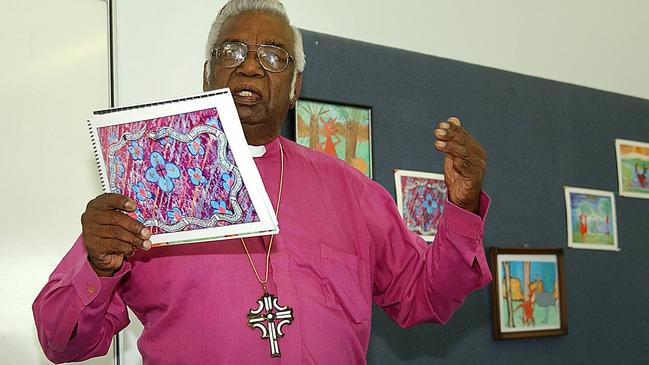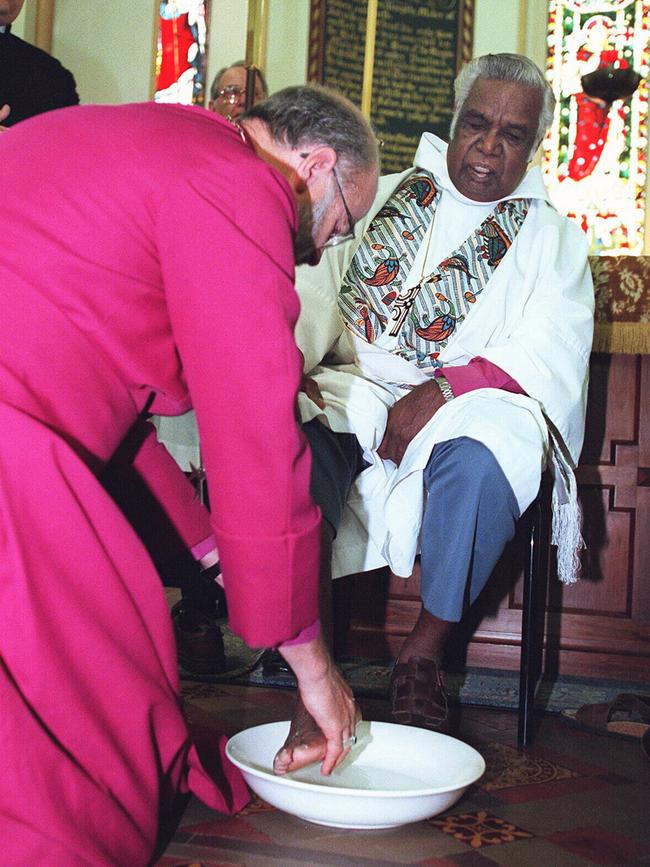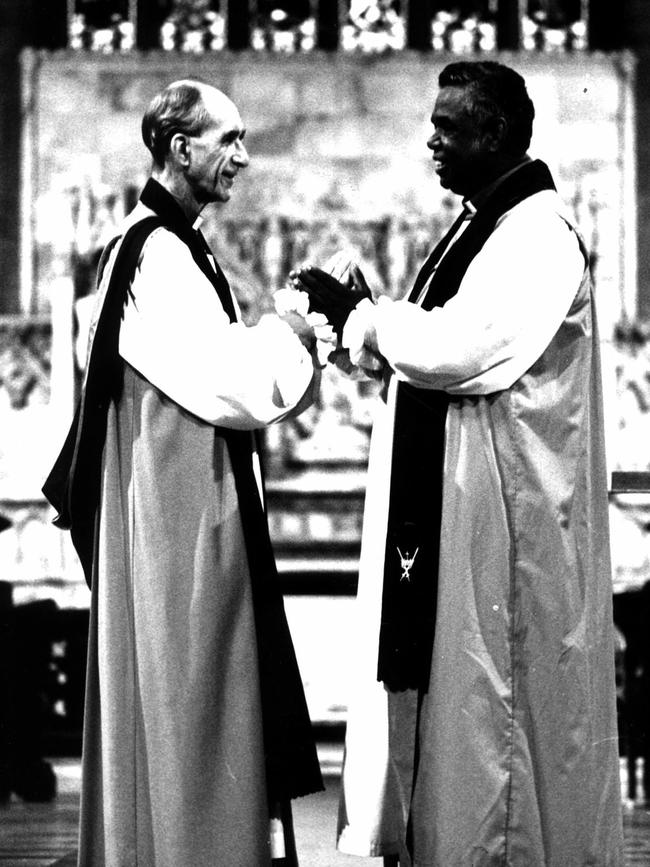Yarrabah Bishop Arthur Malcolm’s funeral told of church pioneer’s thirst for reconciliation
Australia’s first Indigenous bishop Arthur Malcolm was mourned at his funeral in his home town. Read the tributes.
Cairns
Don't miss out on the headlines from Cairns. Followed categories will be added to My News.
“ARTHUR loved Yarrabah and the community loved him.” Of all the sentiments expressed at Bishop Arthur Malcolm’s funeral in Yarrabah today, this by Philip Freier, the former senior bishop in Australia’s Anglican Church, best encapsulated the memory of Bishop Malcolm.
“During his last days, Arthur conversed with many in his family. He told them not to be sad, he was ready to go home,” said Bishop Freier, who delivered the eulogy for Australia’s first Indigenous bishop.
Bishop Malcolm died on July 28, aged 87.

His funeral at St Alban’s Church in Yarrabah today was attended by much of the community as well as many dignitaries, including Bishop Freier, Kennedy MP Bob Katter and Bishop Keith Joseph, the Bishop of North Queensland.
The service was conducted in accordance with both religious ceremony and traditional custom. He was buried with the sand of his country.
“Arthur was very proud of his Aboriginal heritage; he had a thirst for reconciliation,” said Bishop Freier.
![Aboriginal Anglican Bishop Arthur Malcolm [R] with the Dean of Sydney Boak Jobbins, in July 1992. Picture: supplied](https://content.api.news/v3/images/bin/5fae2ca180afd1e20d32e6cb2e30df6d?width=650)
“He accepted people as they were. The Bible says to treat others how you wish to be treated; Arthur stood by this.”
Bishop Malcolm was born in Yarrabah in 1934. Speakers at his funeral remembered how he learnt his culture from a young age, including how to hunt for food and share it with his kin, and then teach these customs to emerging generations.
At age 18, he travelled to Sydney to join the Church Army, an evangelistic organisation, where he met his future wife and eternal companion and comrade in faith, Coleen.
They married in 1965.

“They spent their honeymoon in Yarrabah. Upon his arrival, people greeted Arthur with hugs and glistening eyes, a welcome repeated several times during his life,” said Bishop Freier.
Some years later, after completing religious service all over Australia and also internationally, he and Coleen returned to Yarrabah to serve the local community.
He was ordained as a priest in 1975 and consecrated in 1985.
In the 1990s, the Anglican Church reflected on the part it needed to play in reconciliation with Indigenous peoples in Australia and responded to the calls of its growing Aboriginal congregation for an Aboriginal bishop.
Arthur Malcolm became that bishop.

In 1995, he co-wrote the prayer for reconciliation with his wife.
“Arthur’s leadership was crucial,” said Bishop Clyde Wood, who delivered the sermon.
“His voice will live on, and we will be forever grateful.”
Bishop Malcolm was appointed an Officer of the order of Australia in 2004 for his provision of pastoral care to Indigenous communities and promoting reconciliation.
“He was often called first, before the police, to defuse arguments,” said Bishop Freier.
“He would attend the hospital late at night to comfort and pray for others.

“He performed many weddings and laid many to rest.
“He will forever be remembered as a faithful servant of the Lord.
“Outside of church Arthur hunted, watched footy and participated in community events. He lived a full life, raising his children. Arthur loved his family.”
Bishop Malcolm’s son Andrew was the final speaker at his father’s funeral. Standing, and beating away tears, he expressed his family’s gratitude for all those in attendance.
“As his family we thank you all,” he said.
“[Arthur] had two families: his personal family, and his church family. On behalf of my mother and my sister, thank you.”
More Coverage
Originally published as Yarrabah Bishop Arthur Malcolm’s funeral told of church pioneer’s thirst for reconciliation




